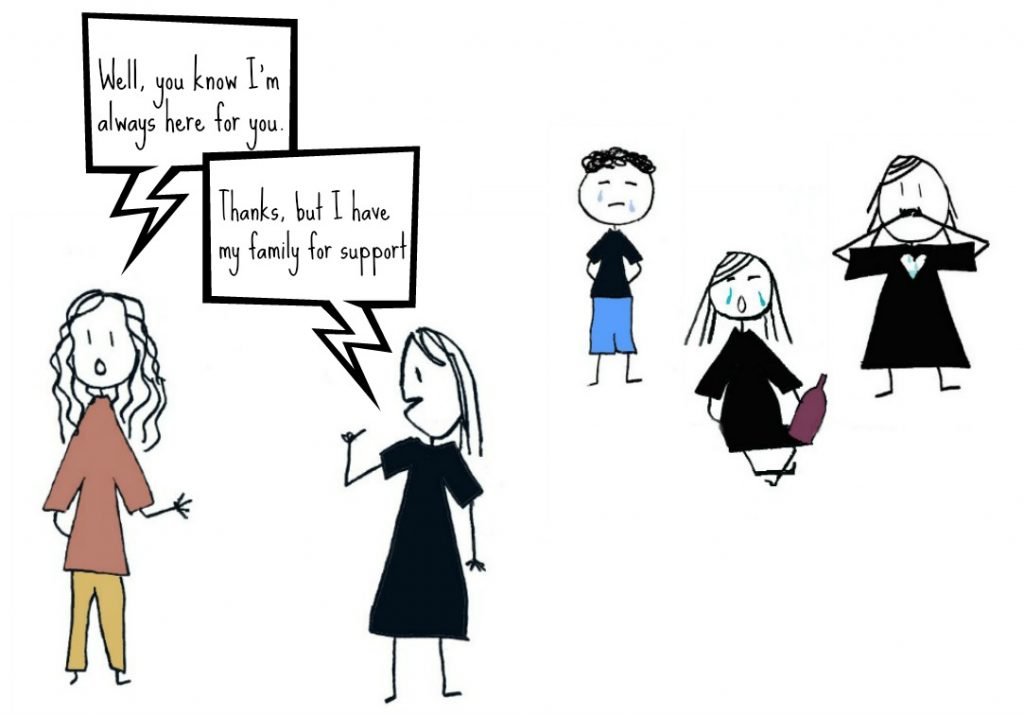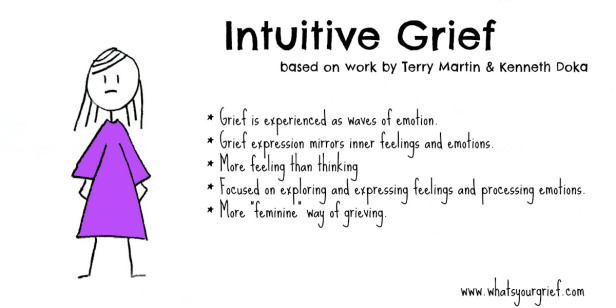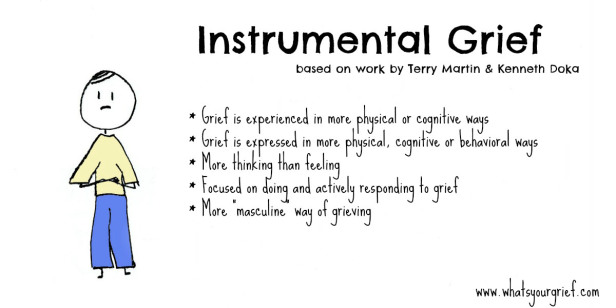Will Flowers Grow Again After Being Stepped on
Ahhhh, family.
Family, family unit, family.
Family can be great, simply that's non what this mail service is about. This post is about decease and grief and all those times you've looked at a family member and said – "who are y'all?" "what are yous doing? " "where were you?" "when did you turn into someone I don't know?" "why aren't you there for me?"and "how can I count on you lot?"
After a death, many people feel isolated and misunderstood. Dejected by friends, co-workers, and customs they may say – well at least I have my family. And why shouldn't they?Family is supposed to exist there for each other. For many, their family unit has always been the weight that keeps them grounded and their beacon in the storm.
Here's the problem, expiry and grief tin make people act kind of crazy and it tin seriously stone a family's center of residue. If the death happened within the family, so there is fertile ground for family misunderstanding as family members try and deal with changing roles and dynamics, unlike grieving styles, and complicated emotions.
Now, some people are lucky to discover their family is exactly as supportive and caring as expected, but it is very common for people to plow to their family and detect themselves terribly disappointed and confused. Nosotros receive a lot of questions most why this might happen, and due to complicated family dynamics, it'due south a question we can rarely answer. Still, we accept a few full general hypotheses about why family unit misunderstanding might occur subsequently a death, which we're going to discuss today. In reality, your state of affairs is probable a combination of factors; our promise for this mail service is to only become you lot thinking.

Changing Family unit Dynamics:
We just love talking about theories around here, and then let's start with 1. Family unit systems theory was introduced by Dr. Murray Bowen in the 1960s. Very basically, the family systems theory says that families are systems of interconnected and interdependent individuals. Within the family system, each fellow member has a office to play and members of the arrangement are expected to respond to each other co-ordinate to their role and relationship. Maintaining the same pattern of behaviors within a system may pb to residue within the family unit organisation (just besides to dysfunction).
When someone dies, the whole family organization is thrown off. Grieving family unit members find themselves disinterested and/or incapable of behaving in the ways they used to. Not but exercise people have to cope with grief, simply they likewise must deal with the fact that a vital slice of the family unit is gone. Some of the roles your loved ane used to inhabit will have to exist filled by family members and, equally everyone adjusts, a seismic shift in the way things 'take e'er been' tin can occur.
Different emotions:
Grief can brand you experience like you lot are going crazy. Your response to grief will be entirely different than anyone else's and so will the range of feelings y'all experience in response to the loss. Here is a partial list of emotions typically associated with grief:
daze, numbness, sadness, despair, loneliness, isolation, difficulty concentrating, forgetfulness, irritability, anger, increased or decreased ambition, fatigue or sleeplessness, guilt, regret, depression, anxiety, crying, headaches, weakness, aches, pains, yearning, worry, frustration, disengagement, isolation, questioning faith.
Quite oft, family members volition respond differently to the same decease. When each person is going through their own individual emotional experience, it can be difficult to figure out how to connect with and back up one another. When someone you love is of a sudden angry, depressed or anxious, or numb, your immediate reaction might be to wish they would snap out of it. Conversely, if you are the one feeling these emotions, you might feel more than afar and isolated from your family. In a perfect world, people would have patience and agreement for ane some other, merely sometimes this is easier said than washed.
Birth order:
Although inquiry on birth order is oft contested, I think we can all hold that position in the family unit has some impact on who we are as people, how we behave in the family, and the expectations we accept for other family members. If yous have a smaller family, it's far more than likely that you lot volition take a prototypical 'oldest', 'middle' or 'youngest'.
It may exist that after a death the oldest child feels they take to pace in and take care of grieving parents and younger siblings. If it is a parent who died, perhaps the oldest kid feels compelled to fill some of their roles. Maybe the youngest kid has been babied and so they feel they need a lilliputian extra emotional support. Regardless, some family members may finish up feeling unsupported or forced to step into shoes they experience they cannot or practise not want to fill.
This whole dynamic becomes a lilliputian more complicated in larger families. But, when there is a large gap in age between the oldest and youngest, I call back it's interesting to consider the idea that the family unit the oldest child grew upward with is often quite different than the family the youngest child grew up with. This might explicate some differences in relationships and in outlook after a death.
Gender/Grieving Mode:
To be perfectly honest, this heading is a bit misleading. It is not a fact that men and women have entirely different and distinct grieving styles. Rather, prominent grief researchers Kenneth Doka, and Terry Martin believe that at that place are dissimilar grieving styles that are associated with being characteristically "masculine" or "feminine".These grieving styles exist on a continuum and gender is merelycontributes to the fashion you lot grieve.For an in depth word on their theory, caput here.
Briefly, this theory asserts that there are two types of grievers – instrumental and intuitive.

Intuitive grief is experienced mainly in terms of feelings and emotions – "I felt pitiful" or "I felt aroused" – and the grief response is unremarkably focused on exploring and expressing these emotions – "I cried all night" or "I got and then mad I couldn't call back."

Instrumental grief is experienced in more concrete and cognitive ways – "I couldn't finish thinking near what happened" or "I felt like I couldn't breathe." The instrumental grief response is expressed in physical, cerebral or behavioral ways and looks more like 'doing' or 'taking action'.
At present, y'all can imagine how misunderstanding would arise when intuitive and instrumental grievers exist in the same family. The instrumental griever, who appears less emotional and more agile, might seem common cold and uncaring to an intuitive griever who believes that emotions are the expression of grief.
Coping Style:
I'1000 non going to go besides in depth on this topic because we've written about it quite a lot. Basically, you lot should never assume that someone will grieve in the aforementioned way every bit you because we all have dissimilar coping styles. The WYG philosophy on coping is that each of us has predispositions toward the rational, the creative, or the emotional sides of our minds. Though we all certainly have a bit of each of these inside us, we frequently lean toward one style over another. To hear more than about this, listen to our beneath podcast on the topic.
Age:
Age and stage of life apparently has a large bear upon on behavior and how ones makes sense of their world and experiences. We've written about the influence of age on child and adolescent understanding; special considerations for grieving teens; and grieving as a twenty-something. The most important take abroad is the idea that a person's life context has an influence on how they perceive their experiences. Things like access to back up, past experiences, resource, concrete health, existential malaise all have an affect on grief and also change with age. So in attempting to empathize another person, information technology is mostly helpful to accept their stage of life into context.
Secondary Stressors:
Guild'due south notion that grief is something that can exist 'dealt with' within months to a year subsequently a loss seems ridiculous to many. I think this notion assumes that people take all the time, space, and support in the world to deal with their hardship. When in reality people take to deal with all sorts of extra stressors similar work, schoolhouse, childcare, etc on top of their grief. Sometimes people take to prioritize and make choices nearly the things they will give their fourth dimension and attending to which might mean…
- Giving less time and attending to the things theyusedto care about
- Having less energy to support other people
- Choosing non to focus on themselves and their grief
- Opting out of time with family and friends
- Condign overwhelmed
It can be easy to lose patience with someone when you call up they are letting you down or handling things poorly, only before passing judgment y'all should consider all the many things they have on their plate.
They're in a dissimilar place:
Although people would have you believe at that place is a timeline associated with grief, there really isn't. And then it should almost exist expected that people grieving the same loss will exist at different places in their grief at different times. You may exist gear up to talk openly about your loved ones decease, while the rest of your family still prefers to avoid the topic. Your sibling might experience capable of sorting through your loved one's belongings, while you lot still tin can't imagine the thought of information technology. These differences can easily result in misunderstanding and confusion, so advice and patience are key. Although some family unit members may never want to grieve in the aforementioned way yous do, many times people just need fourth dimension to find their own peace and perspective.
Avoidance and negative coping:
Avoidance is one of my favorite topics because I think information technology explains so much of what we do. We wrote a very comprehensive postal service on this topic which I encourage you to read. When we talk virtually abstention in grief we are normally referring to experiential avoidance.
Experiential avoidance is an endeavour to block out, reduce or change unpleasant thoughts, emotions or actual sensations. These are internal experiences that areperceivedto be painful or threatening and might include fears of losing control, beingness embarrassed, or physical harm and thoughts and feelings including shame, guilt, hopelessness, meaninglessness, separation, isolation, etc. At present please note I say "perceive to be painful or threatening," these perceptions are often subjective and what is perceived as threatening to 1 may seem totally irrational to some other.
One might avoid in grief considering they don't like to experience painful feelings. The onset of a grief wave is sometimes anticipated but oftentimes not and each new moving ridge brings with it an ocean of unpleasant thoughts, reminders, sensations, and memories.
Many are experiencing emotions of this blazon and intensity for the kickoff time and in response, they may exhibit physical, behavioral and emotional reactions they aren't comfortable with. This may be particularly true for those who take yet to develop a reliable set of coping skills. Although grief is ever unpleasant and uncomfortable, for some there are aspects that actually seem threatening and these perceptions can lead to attempts to control or avoid frightening feelings and reactions.
Then, when your hubby is putting abroad your deceased son's holding way before you're prepare, it might be in an try to avoid reminders. When your siblings refuse to talk with you about your deceased father, it might be in an effort to avoid the memories. In grief, avoidance is ofttimes perceived as a lack of caring when in authenticity information technology comes from intense caring.
Avoidance is at the eye of most negative coping. Negative coping consists of things like substance use, staying decorated, and isolation; basically annihilation you tin can do to numb, forget, and minimize your exposure to grief triggers. To learn more than about negative coping you can listen to our podcast on the continuum of negative coping:
Now that you understand the 'why', if your family is fighting in the wake of a death go here for some helpful tips on treatment the situation.
Subscribe to What's Your Grief to receive posts straight to your inbox.
Source: https://whatsyourgrief.com/family-misunderstanding/
0 Response to "Will Flowers Grow Again After Being Stepped on"
Postar um comentário